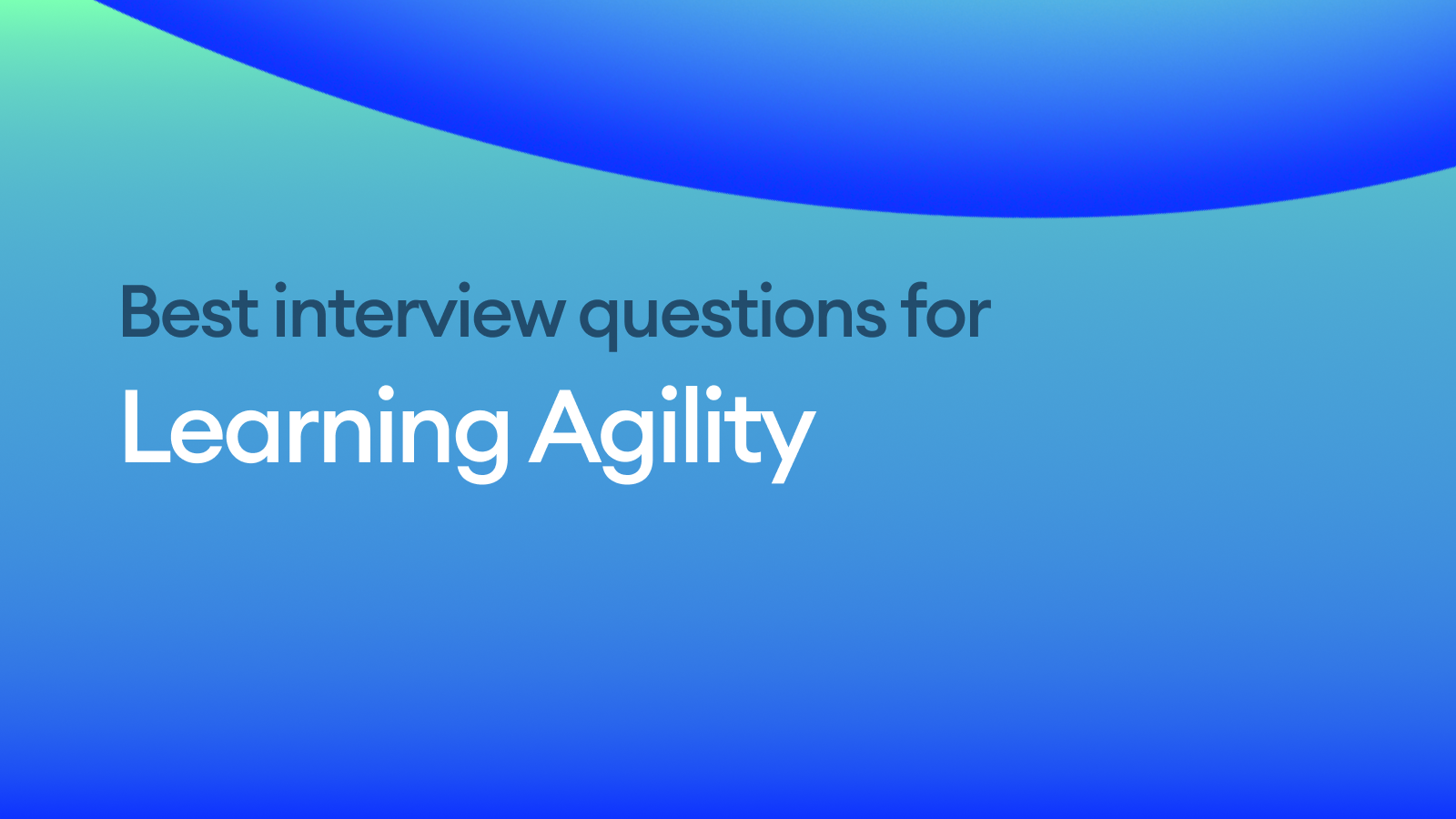Learning agility has become a critical attribute for success. Learning agile individuals demonstrate the ability to rapidly acquire new skills, adapt to changing circumstances, and apply their knowledge effectively in diverse situations. Assessing learning agility during the hiring process ensures that candidates can not only meet today's demands but also thrive in tomorrow's challenges.
Learning Agility Interview Questions
- Can you describe a time when you had to learn a new skill or technology quickly to complete a project?
- Tell me about a situation where you had to adapt to significant changes at work. How did you handle it?
- Give an example of a failure or setback you experienced. What did you learn from it?
- How do you stay updated with industry trends and incorporate new knowledge into your work?
- Describe a time when you had to solve a problem without having all the necessary information. What was your approach?
- Can you share an experience where you had to unlearn a previous method or practice to improve your performance?
- How do you prioritize learning and development in your professional life?
- Tell me about a time when you sought feedback to improve your performance. How did you use that feedback?
- Describe a situation where you had to collaborate with a diverse team. What did you learn from that experience?
- How do you handle tasks or projects that push you out of your comfort zone?
What to Look for in Answers
- Demonstrated Adaptability: Look for instances where the candidate successfully navigated change or handled unexpected challenges.
- Proactive Learning: Candidates should show initiative in acquiring new skills or knowledge without being prompted.
- Resilience and Growth from Failure: Assess whether the candidate can learn from mistakes and use those lessons to improve future performance.
- Application of Knowledge: Evidence that the candidate not only learns new information but also effectively applies it to their work.
- Problem-Solving Skills: Ability to approach problems creatively, especially in situations with limited information.
- Continuous Improvement: Indications that the candidate is committed to personal and professional growth.
- Openness to Feedback: Willingness to accept and act upon constructive criticism to enhance their abilities.
- Collaboration and Diversity Appreciation: Experience working with diverse teams and leveraging different perspectives for better outcomes.
- Comfort with Ambiguity: Ability to perform well even when faced with uncertain or unclear situations.
- Strategic Prioritization: Skills in managing time and resources to balance learning with other responsibilities.
Tips for Evaluating Learning Agility During the Hiring Process
-
Assess Through Hypothetical Scenarios
Present situations that require quick learning and adaptability to evaluate how candidates might handle them. -
Look for Patterns in Responses
Consistency in examples of learning and adapting across different interviews can indicate genuine learning agility. -
Evaluate Willingness to Learn
Pay attention to candidates' enthusiasm for acquiring new skills and their commitment to continuous improvement. -
Incorporate Assessments and Tests
Utilize tests that measure cognitive flexibility, problem-solving abilities, and the capacity to learn under pressure. -
Check References for Learning Agility Indicators
Speak with previous employers or colleagues to gain insights into the candidate's ability to learn and adapt in the workplace. -
Observe Adaptability in Real-Time
During the interview, introduce unexpected questions or changes to assess how candidates respond to unforeseen challenges. -
Balance Learning Agility with Other Competencies
While important, learning agility should be evaluated in conjunction with other key skills and attributes relevant to the role. -
Provide Opportunities for Candidates to Demonstrate Learning Agility
Engage candidates in tasks or discussions that allow them to showcase their ability to learn and adapt on the spot.
Summary
Assessing learning agility is crucial for identifying candidates who can thrive in dynamic and evolving workplaces. By incorporating targeted interview questions, carefully evaluating responses, and utilizing effective evaluation strategies, employers can better determine a candidate's ability to learn, adapt, and grow within their organization. Investing time in understanding and measuring learning agility not only enhances the hiring process but also contributes to building a resilient and forward-thinking team prepared to face future challenges.


